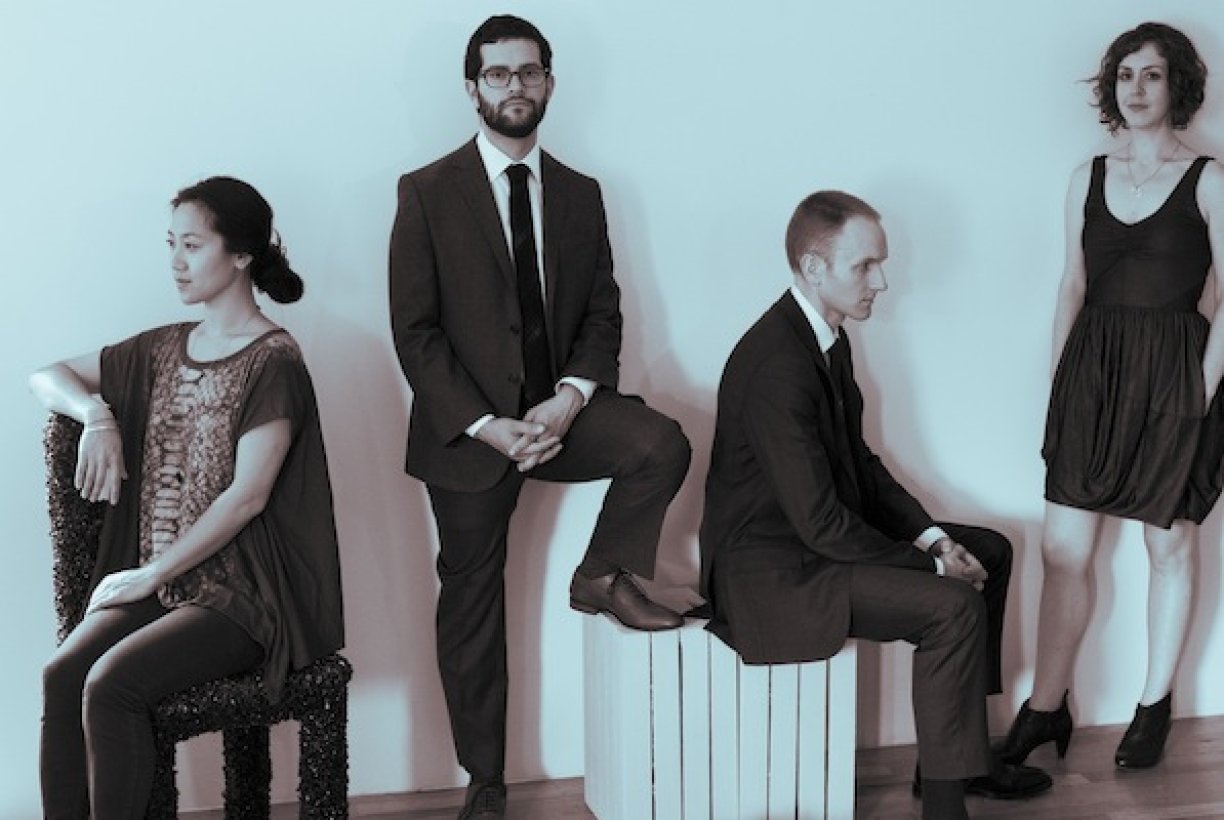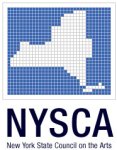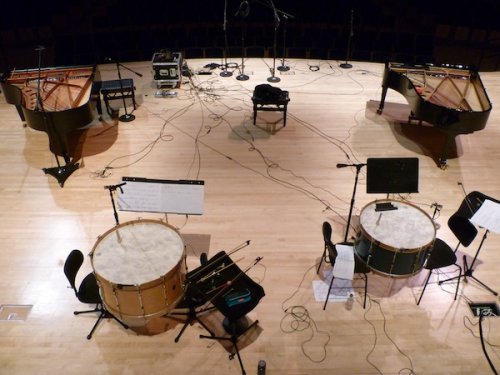Yarn/Wire completes its residency at Issue Project Room with new works from three extraordinary American composers. Andrew McIntosh is a Los Angeles-based composer who draws inspiration from his natural surroundings and investigates just intonation. Coming from an experimentalist tradition, Elizabeth Adams imbues her richly textured music with a sense of muted play. Now residing in the Midwest, Christopher Burns creates rapidly changing complex surfaces teeming with dense minutia. This concert is a special opportunity to experience three wildly unique approaches to modern composition.
Yarn/Wire is a chamber quartet specializing in the performance of 21st century music. A unique instrumental combination of two percussionists (Ian Antonio and Russell Greenberg) and two pianists (Laura Barger and Ning Yu) allows Yarn/Wire to interface with both traditional performance practice and emergent stylistic trends with ease. Founded in 2005 at Stony Brook University, the members of Yarn/Wire have extensive performance and pedagogic experience encompassing international and domestic music festivals, college and university residences, and substantive work in the avant-garde theater and DIY/punk worlds. Frequent collaborations with composers on new work form a significant portion of the ensemble’s activities. In addition to presenting multiple US premieres, Yarn/Wire has given the world premieres of over two dozen new works written specifically for the ensemble.
Christopher Burns is a composer, improviser, and multimedia artist. His instrumental chamber works weave energetic gestures into densely layered surfaces. Polyphony and multiplicity also feature in his electroacoustic music, embodied in gritty, rough-hewn textures. As an improviser, Christopher combines an idiosyncratic approach to the electric guitar with a wide variety of custom software instruments. Recent projects emphasize multimedia and motion capture, integrating performance, sound, and animation into a unified experience. Across all of these disciplines, his work emphasizes directionality, layering and intercutting a variety of trajectories to create form. Both electronic and acoustic music are influenced by Christopher’s work as a music technology researcher. His improvisation software designs incorporate a variety of unusual user interfaces for musical performance, and explore the application and control of feedback for complex and unpredictable sonic behavior. In the instrumental domain, he uses algorithmic procedures to create distinctive pitch and rhythmic structures and elaborate them through time. Christopher is also an avid archaeologist of electroacoustic music, creating and performing new digital realizations of classic music by composers including John Cage, György Ligeti, Alvin Lucier, Conlon Nancarrow, and Karlheinz Stockhausen.
Andrew McIntosh strives to write vibrant and compelling pieces while bringing a spirit of experimentalism to the music, usually through working with just intonation and frequency ratios. He finds that major influences on his creations come from literature, visual art, early music, physics, and the Nevada desert. His compositions have been performed around the US and Europe in venues such as REDCAT in Walt Disney Concert Hall (Los Angeles), Gaudeamus Muziekweek (Utrecht, Netherlands), Hamburger Klangwerktage (Germany), Schijnheilig (Amsterdam), the Dartington International Summer Festival (England), Zweilicht (Berlin), Unruly Music (Milwaukee), Bludenzer Tage Zeitgemasse Muzik (Austria), SoundOn Festival (San Diego), Gridlock (Vancouver, BC), the Wulf (Los Angeles), Armory Center for the Arts (Los Angeles), and Radio 4 (Netherlands). He was awarded First Honorable Mention (2nd prize) in the Gaudeamus International Composition Competition 2011. A native of rural Northern Nevada, McIntosh is currently based in the Los Angeles area where he enjoys a large and frequently unexpected variety of performing, recording, teaching, and composing activities.
Elizabeth Adams writes music for small groups of people. Her work often critiques or models social dynamics and exchanges of power. She looks at every neighbor as a critic, composer, and performer of our musical and social environments. In New York City, she and the Orfeo Duo co-founded the Garden Performance Project, a community-garden-based workshop of recycling, instrument-building, composition and performance; New Music Workshops for Amateurs; and Songlines,a collaborative mapping of neighborhoods in song. She holds degrees in Music, English, Composition, and Experimental Musictheater from Barnard, Stonybrook, and the Hochschule der Künste, Bern. Her work has been performed all over Europe, but she is currently focussing on community venues in the five boroughs. As a doctoral composer at the CUNY Grad Center, she has taught music history and electronic music at Baruch College. She teaches composition for activists at the School For Designing A Society and composition for microtonalists at Xenharmonic Praxis Summer Camp. The teachers who have most influenced her current thinking are Joe Dubiel, Georges Aperghis, Mark Enslin, Susan Parenti, and Elizabeth Hoffman. In 2011 she co-founded an experimental chamber ensemble called Praxis.




